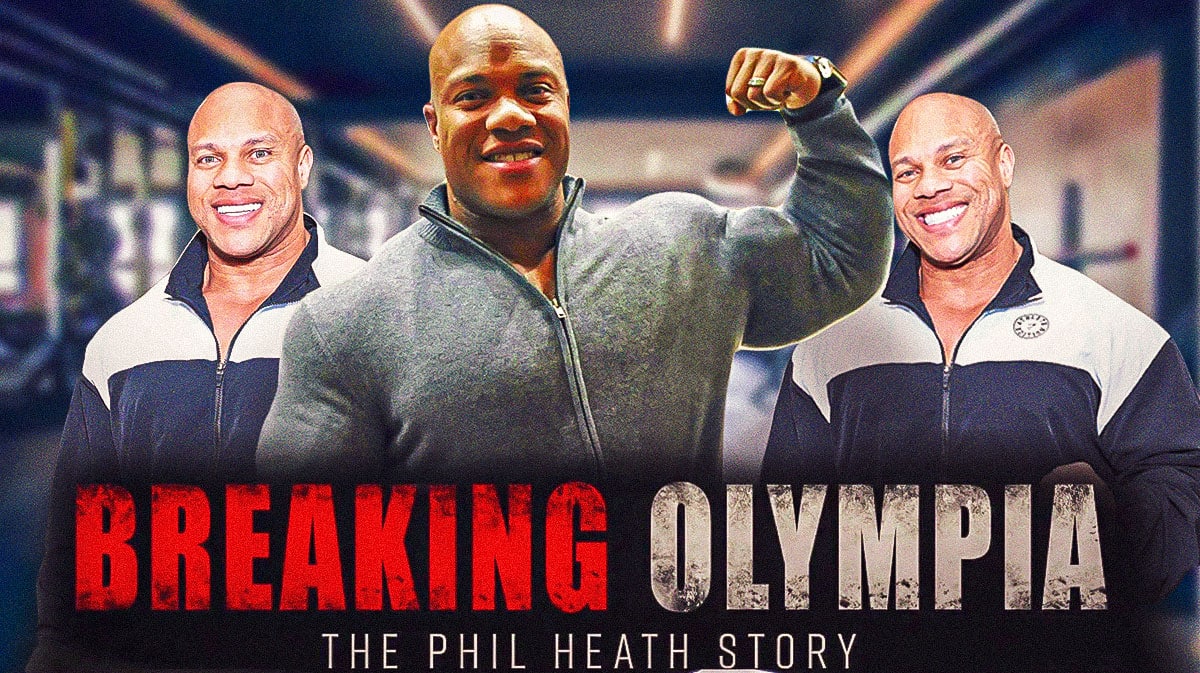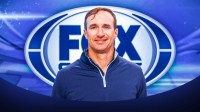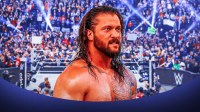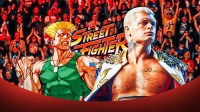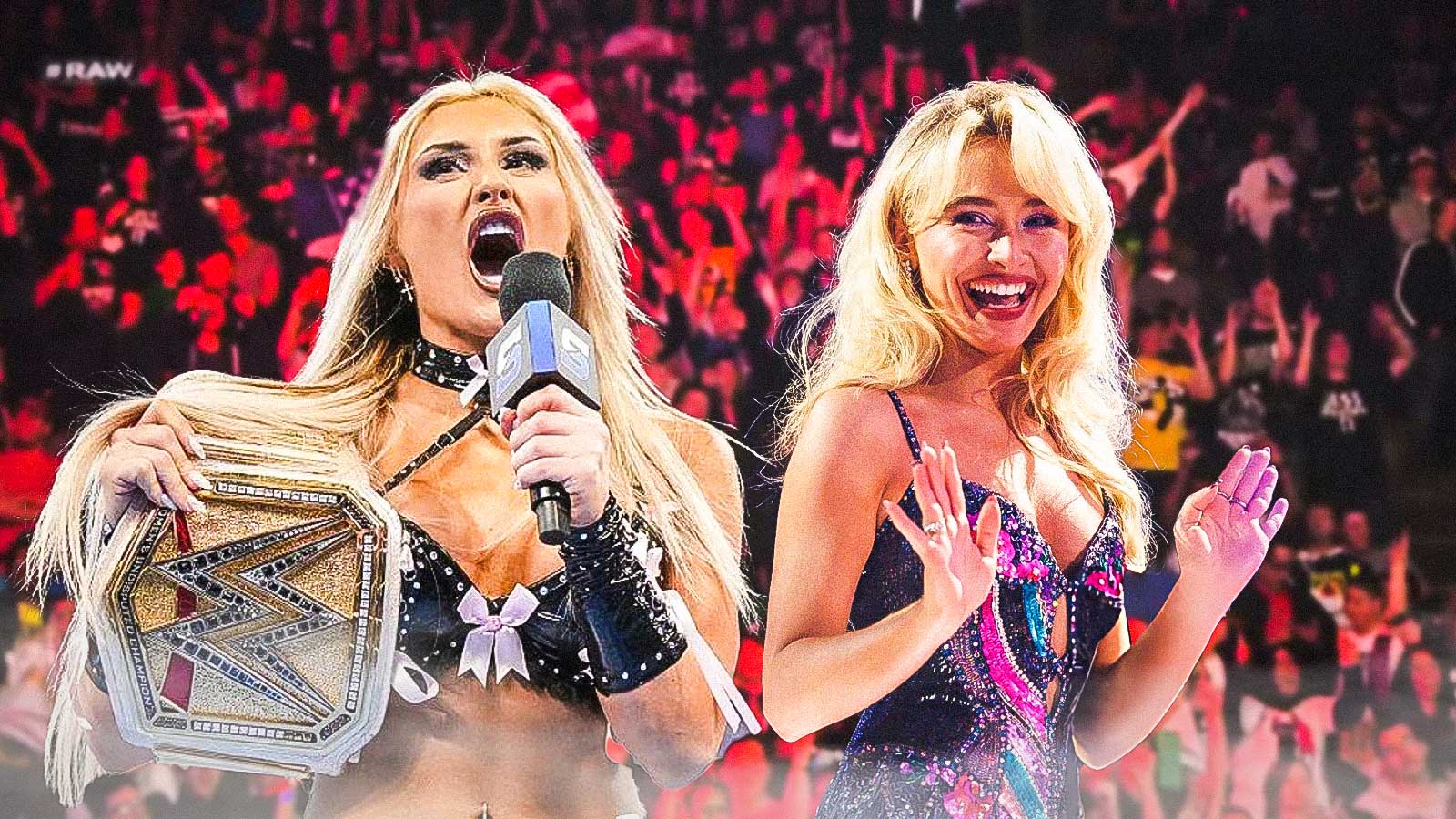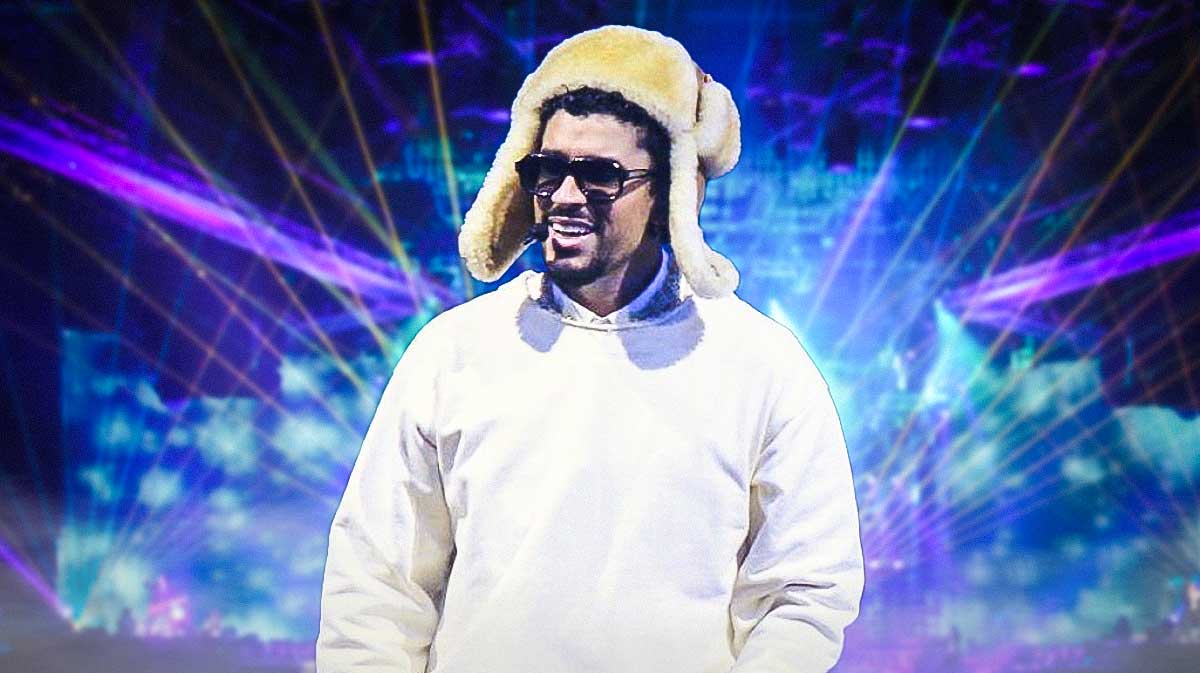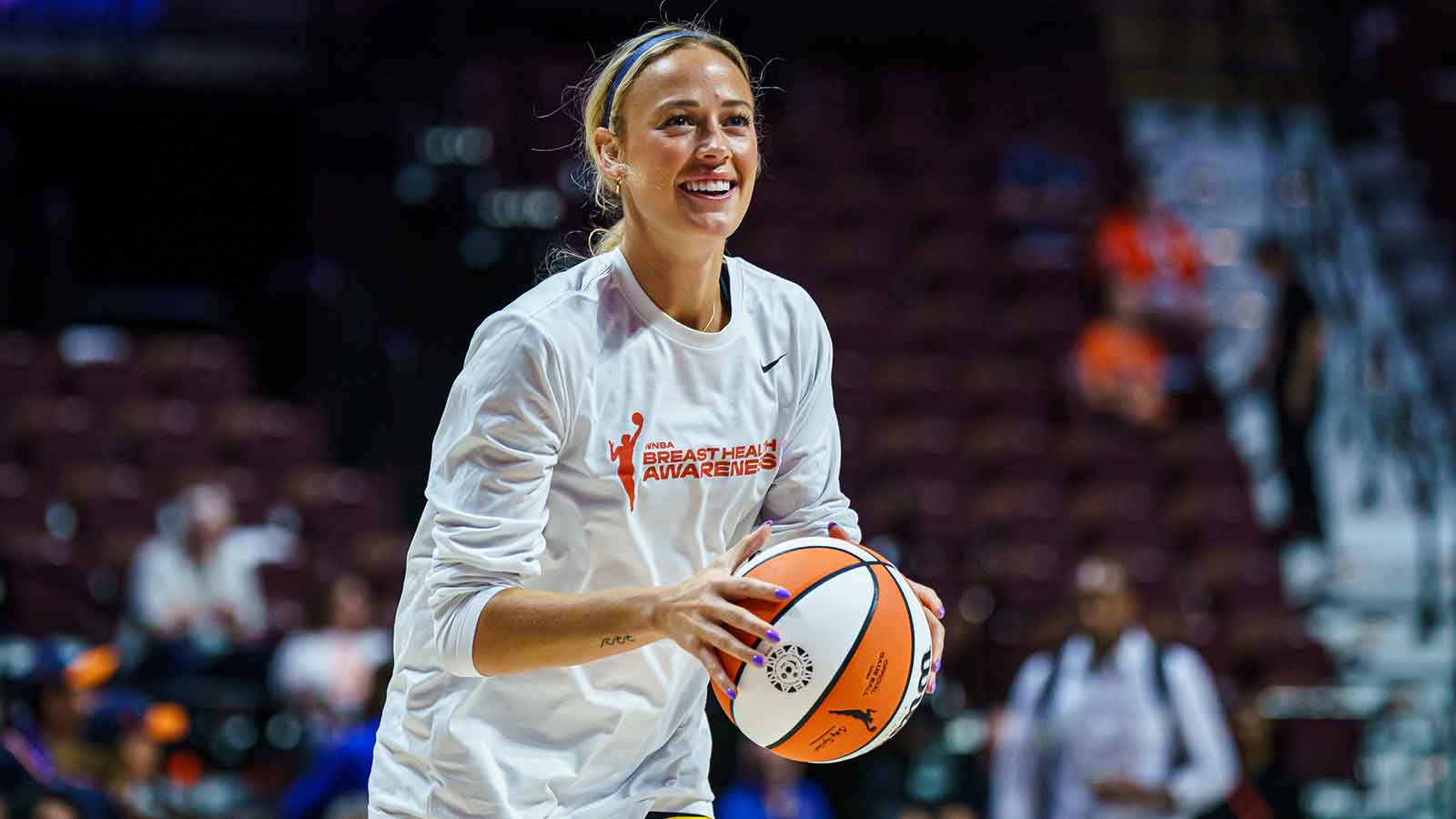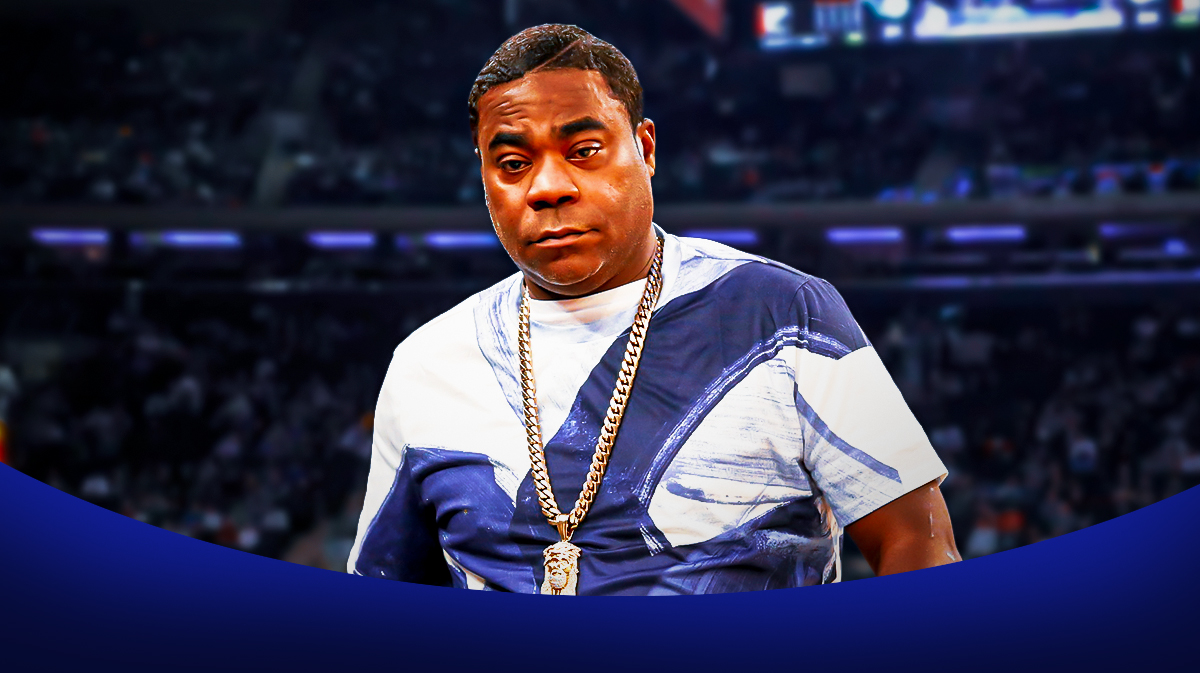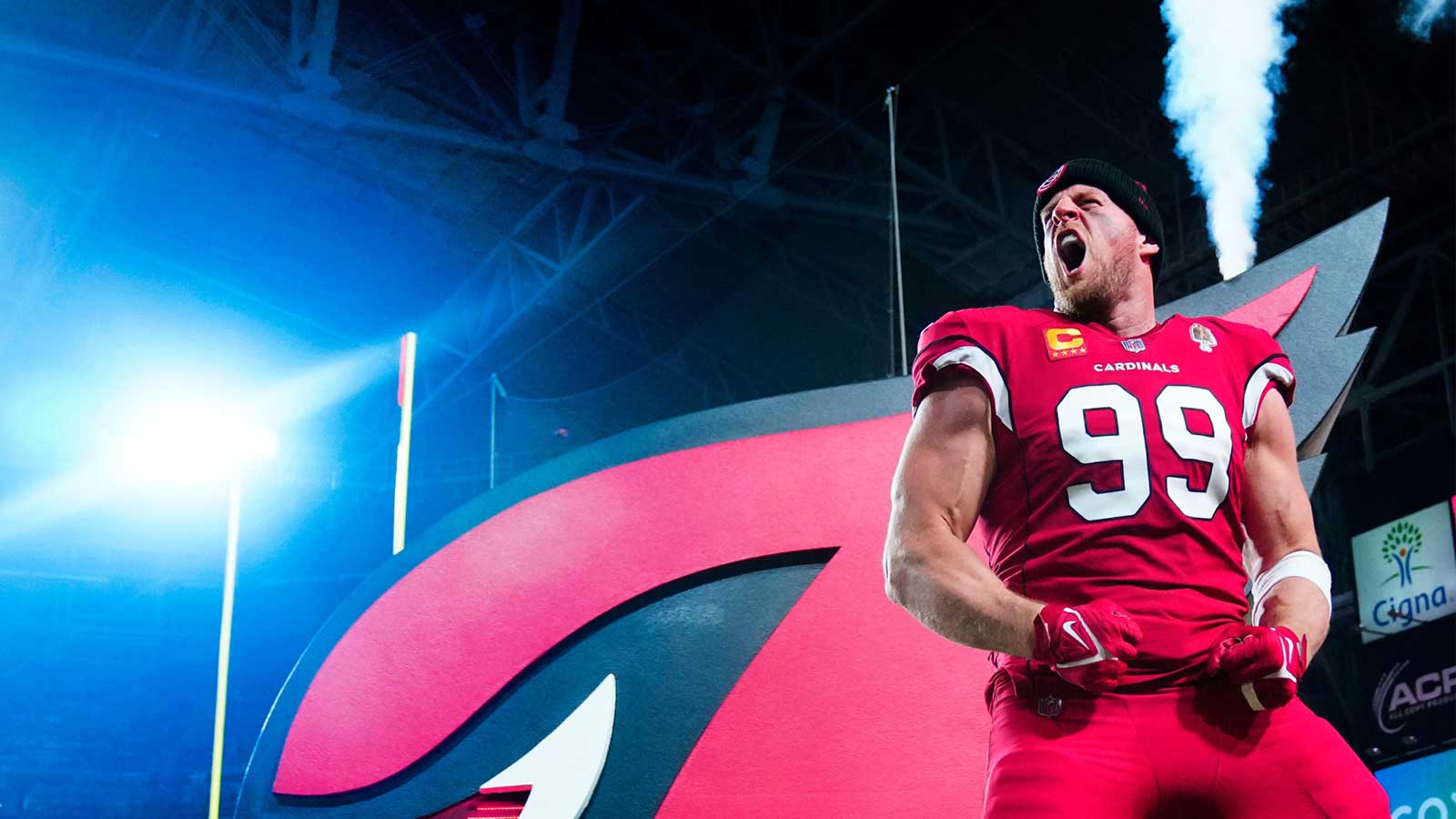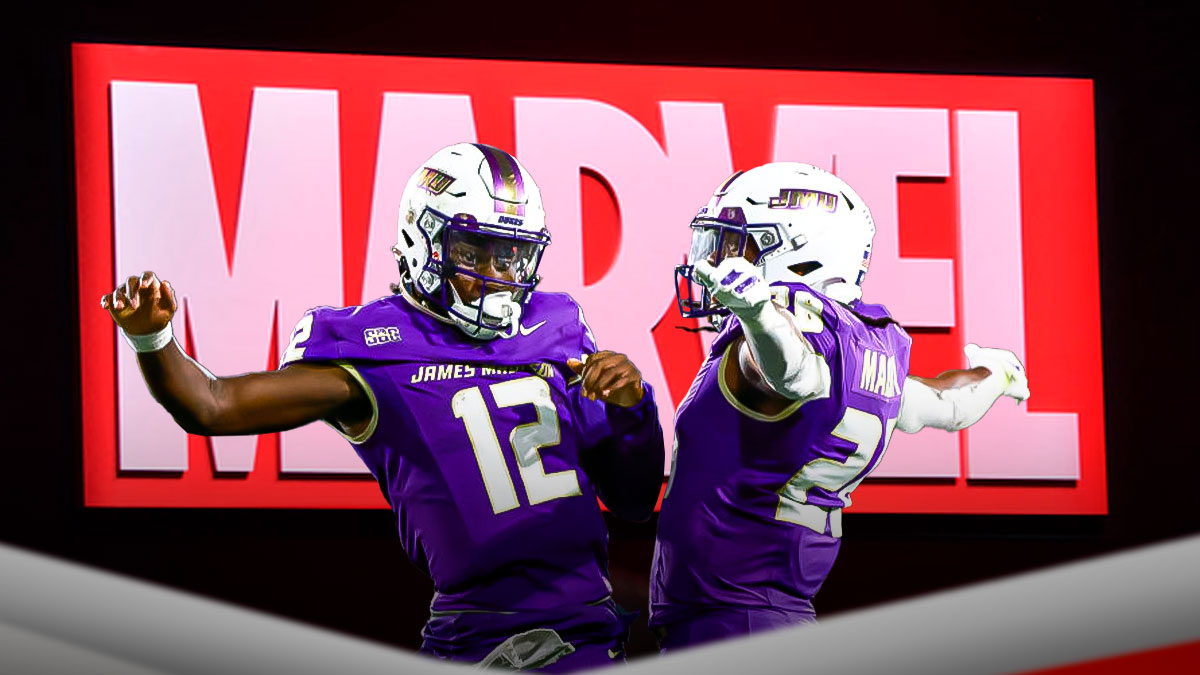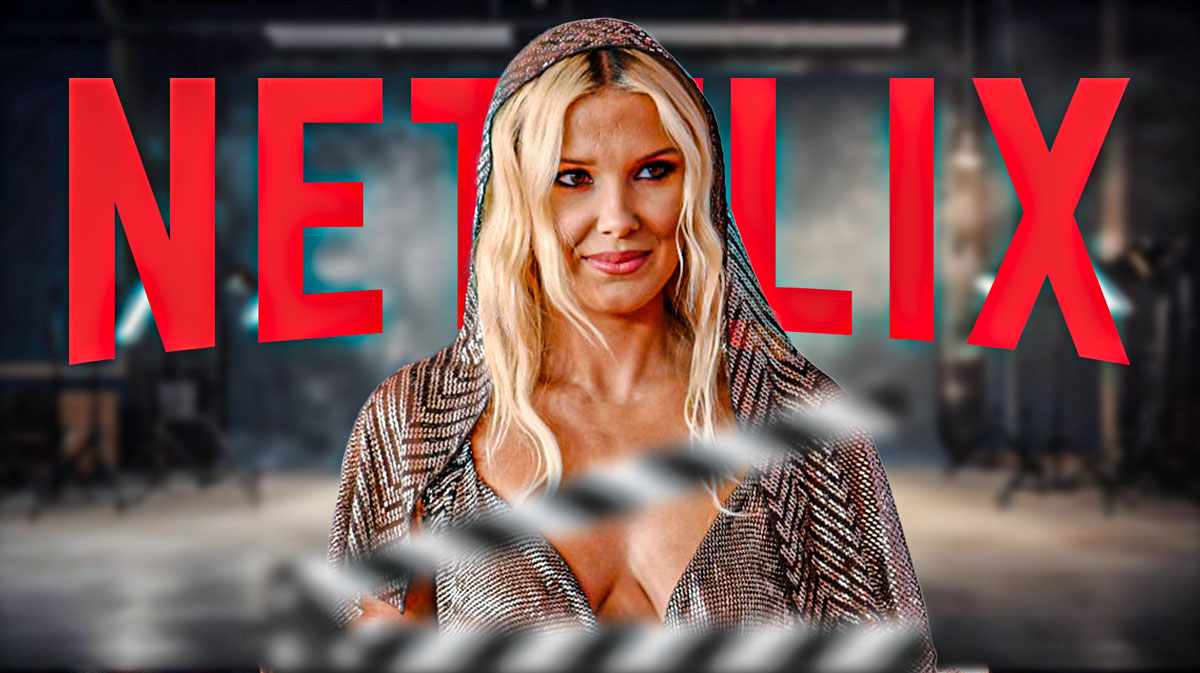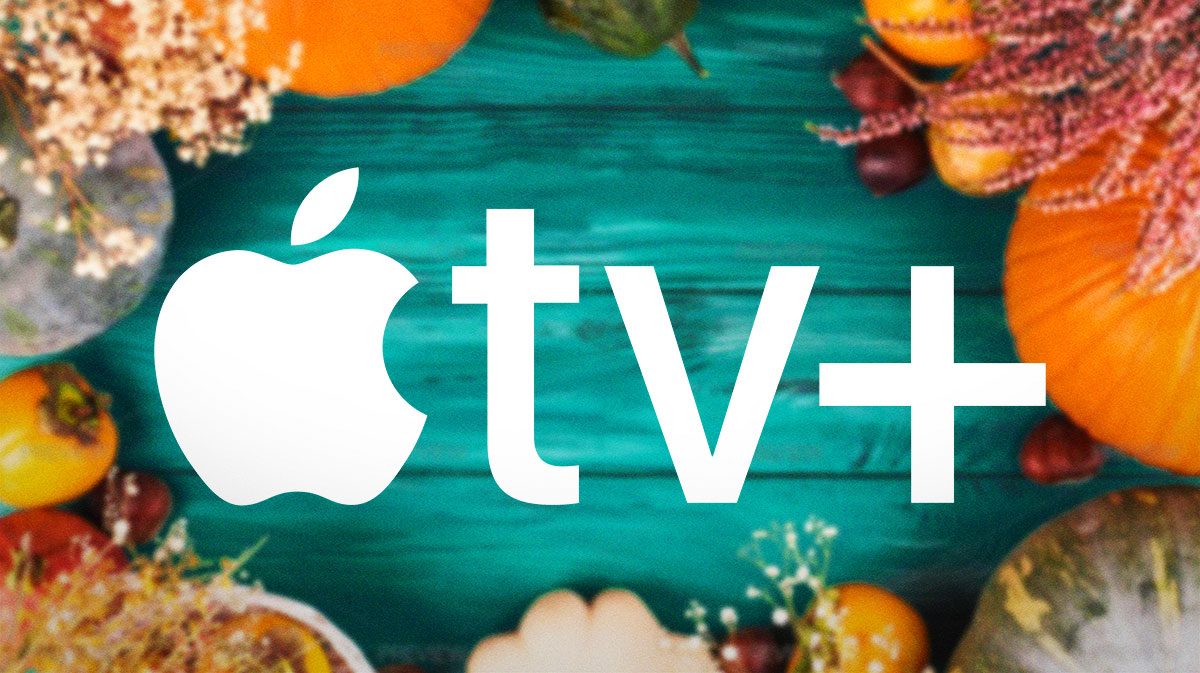Being the best at what you do is certainly an accomplishment to be proud of. Winning the top competition in your field is the mountaintop. But how many people can not only achieve that goal, but do it seven consecutive time? Well, Phil Heath certainly can say he has been there, and done that.
We spoke with the seven-time Mr. Olympia about the new documentary about his life and return to Mr. Olympia after an injury. Breaking Olympia: The Phil Heath Story is available now for all to watch, and we wanted to know what Phil has planned for the future and how his heights in bodybuilding can be turned into inspiration for all walks of life.
ClutchPoints: Obviously, you filmed a lot of this at the end of 2020. So, I don't know if the plan was originally to release it closer to that time frame. Now it’s been three or four years since the initial ending of the film. Has the feeling about the final product changed at all from what you might have originally planned?
Phil Heath: I think timing is everything, and I truly believe that the timing of Breaking Olympia's launch couldn't have happened in a better given moment. Although it's like three and a half years removed from competition, I think it allows the fans that have been following me closely with my bodybuilding career to now have a new sense of context as to why they haven't seen me on the competitive stage.
You know, because I've kept my body up to a certain standard and people have been like, “Hey, you know, he's coming back,” and this and that. And now they get to see what my thought process was even going into 2020. So I think, of course, with this year being the 60th Mr. Olympia, and I'm also being inducted into the International Sports Hall of Fame; with Breaking Olympia, kicking the year off with a bang. I think it's just going to be a monumental career path for me.
CP: For a lot of people, they may not realize how personal this film does get. When it comes to where your basketball career ended and then bodybuilding came along, do you feel like that was kind of a happenstance of chance? That bodybuilding to fill that need to be active in your life was somehow always in the cards to keep you from going down a certain road?
Phil Heath: In some sense, yes. Because, when I was 17 years old, I was being interviewed by the Seattle Times. And in that interview I had just signed my letter of intent for the University of Denver to play on their men's basketball team. And of course, they were like, “Oh, you know, you just signed your letter of intent.You got a full ride scholarship. You have dreams of playing in the NBA. What are your thoughts about that?” And I said I might not make it to the NBA, but I'm going to be professional at something. So I was able to fulfill that dream with bodybuilding. And I'm glad that basketball didn't work, because I got to be arguably one of the best of all time, right?
Best of my era and my documentary Breaking Olympia would not even exist. To know that I transitioned from being a high school standout to get a Division 1 scholarship, things not working out the way that I hoped to, then being able to pivot and be a seven-time Olympian. This now allows other Division 1, Division 2 athletes of any sport to say, you know what, my life isn't over.
I can do other things. I can pivot into other areas of life with my talent in fitness, and maybe we'll see, you know, some more basketball guys or maybe some football players get into competitive bodybuilding. Or some gymnasts get into women's fitness. I don't know, but, that's just how I look at it.
CP: Well, on the same side of things, I know it's impossible to tell since it didn't happen, but in a lot of ways… and I'm not trying to say that, NBA players don't care about their bodies and don't train as hard as they can to be the best at their game. But in a lot of ways, since it becomes this kind of glamorized lifestyle, being in the NBA, maybe the lifestyle of becoming a bodybuilding also helped out in the long run. Because it kept you in a certain frame of mind that you may have not had if you went into the NBA.
Phil Heath: Oh gosh, if I have made it into the NBA or even close…I mean, being 5-foot-9, the chips were not in my favor to begin with. And, you know, I like to gamify things. And I realized like, let's just say if I did, it would not be a long, great career just by data alone being under 6 feet tall.
So what would have happened? I would have gone to play ball overseas to then come back to the States and then do what with my life? I would have been at a real nasty crossroad of having to realize — wait a minute, I went to college. I graduated with a degree in business and information technology that I wouldn't have used for like 10 years post-graduate, sitting down work for the same guys I graduated college with at 30 years old.
It just didn't make sense. So, I think everything happens for a reason. I think life also has zero rehearsal. You have to just be able to pivot and put your best foot forward. And the problem is, it's easy to say it is very hard when you're in the trenches to do it. To keep pushing forward and to just navigate this whole damn thing.
CP: I think the most interesting thing came at the very beginning of the movie. My knowledge of bodybuilding is, of course, not extensive in a lot of ways. So I found it interesting that a lot of the things I first started to think about got addressed early on in the film.
And the thing I love the most is when you first explain how you would go through, I'll call it the catalog at this point, because I don't have the best description as a novice. You're kind of marking off where you saw in this year Arnold won it and he had, let’s say his oblique, looking like one way. And then when he lost this person, had this muscle this shape. And you almost like Frankenstein yourself to be the epitome of everybody who's won previously. Is that something that is easy to do? To glamorize those specific muscles so intently?
Phil Heath: I think bodybuilding is definitely a sport of great discipline, awesome work ethic, but most importantly, accountability and vulnerability. You have to be extremely vulnerable with yourself to say, “Okay, these are the areas where I'm most weak at,” and I have to be accountable and say, “Look, I want to change this and decide that that's what you're going to do and not deviate from that plan while still loving yourself through that process.”
You have to be mindful of the words that you say to yourself. You get this every time. I would do that adjudication and say, “Okay, I want bigger shoulders like Kevin Levrone. I want a bigger chest like Ronnie Coleman. I want legs like Jay Cutler or whoever. I can't say I can't do this. I have to say I am going to do this. This person is a body of proof that it has already occurred. I just want to now take a little bit of here, take a little bit of there and just try to figure out my own theory, my own method, and give it a try. And for me, it was always just the proof that is going to be here in your performance.
So I would journal, I would then take the photographs like you see in the film, and then I would see, “Okay, maybe this didn't work out so well, maybe I need to change it up a little bit,” and just trial and error and just gamify it as much as possible. And that way I can become my own critic.
The hardest part is to stare into the mirror and love yourself, because the majority of people look like we care and we stare in the mirror and we're picking ourselves apart. Are you really loving yourself while you're doing that? Probably not. So while being a competitive bodybuilder, knowing that you're going to be adjudicated, you can't do that. You have to say, I'm doing this because I love myself. I love my ability, and I just want to get to work and be passionate and fascinated over this process.
CP: Well, talking about this being a competitive sport… You're friends with Jay [Cutler] when you hit the scene. So, it's like you're already intertwined with this legacy in a lot of ways when you get in there. It seems easy to have people like him appear in the film. And I know, as the film goes over, you kind of made a bond with Kai [Greene] in a way. But, like, is it interesting to think that you weren't going to be able to get certain people — even Brandon [Curry] — to talk about you? And again, also because it also is important to them as well, was it a surprise to get certain people to agree to be in this?
Phil Heath: I wasn't surprised because I believe they know that if the tables were turned or if they have a project, I would be honored to be a part of it. Kai had a project and I was a part of his project, and in the grand scheme of things, we all want to elevate each other. Even if we're rivals, we want to elevate each other because we know that when it's our time, we would hope that we would have that same honor, respect, and we have the respect for the sport.
Therefore, we know that when there's an opportunity for us to big up another person or, you know, just tell it like it is the only way to help the next generation of bodybuilders. And for this to be the opportunity that they were presented. These are all champions too. Yeah. So they're well within their right to be a part of something that's going to be remembered for a long, long time.
So I don't think that there was any pushback. I didn't hear anything. I wasn't necessarily surprised, but I was so freaking grateful for each and every one of their contributions. And especially with Kai, because that was the Kai that I don't think other people got to see as well. And I'm just so thankful that he gave his honest time and vulnerability in that process because it could have been hard at some point. But you know, I just look at it as I earned his respect and he earned mine. So it all worked out well.
CP: But now that you aren't necessarily competing in Olympia, are there parts of you that when you watch every year, and you might see somebody getting a string of wins, does part of you start to watch closer in fear that your consecutive string of wins will snap? Is there a part of you that is relieved when you see someone possibly miss that mark?
Phil Heath: You know, I was just in Columbus, Ohio, watching the Arnold Schwarzenegger classic, and then I was in the UK watching another Arnold Schwarzenegger classic. Everybody kept looking toward me. They're like, “I feel like you would do very well in this competition.” I even had one of the judges who happens to be in the film say, “Hey, you would be right in that mix.”
And, you know, part of me was saying, “Of course I would.” Because I still feel freaking healthy, man. And, so knowing that and having people tell me that that's always nice, it's always great to see people have that feeling about you. But at the same time, I've also moved on and realized that at some point this day had to come.
It's extremely difficult. I still deal with the — I would say demons. I still deal with wanting to compete, but I'm always going to be a competitive man, and I just have to redirect that into my weightlifting. But just not to step on stage. I can now be redirected to business. I can redirect it to my relationship with my wife and all those other things. I can just be more of a gift to our industry or for our sport to show other athletes like, “Hey, when it's your time, you move, you move away, you step aside, let the other guys come in.”
But you can still participate, whether it be commentating like I'm doing at the Mr. Olympia contest or still doing seminars and whatnot. You can still be in shape. So, it doesn't define you as much as you believe because your identity isn't going to read “Seven-Time Mr. Olympia” on your headstone. It's going to read “Phil Heath” on your headstone. That's how I look at it.
CP: Is there any part of you that is interested then also in possibly moving into a coaching capability where you find the next star? Like, when people first saw you and said, just give this guy two years and you know, like when Hany said, “I can make this guy into something special.” Is that something you want to do?
Phil Heath: Not at this point. I do look at coaching people on their pain points in life. I do look at people like, whether it be entrepreneurs and business people that are trying to achieve greatness and then have it, go a step further. And a step further in maintaining that level of excellence for a decade.
I do know what it takes. I don't have to be a CEO of a Fortune 500 company to know certain attributes and then understand that when you find your recipe in success, whether it be in business or in my case, to be in Mr. Olympia, that is just the beginning. What then happens after is life. When you have to deal with a death, when you have to deal with maybe the birth of a child?
I don't have that. But, I have certain other areas that are more relatable, like dealing with a business that didn't go well or an illness or something like that over a loved one. Just knowing how to understand that you're not alone and that you can create a community. So that's really where I feel like I can thrive.
I can thrive with young men and certainly men over 35. Those who think that they are still trapped. They feel like they're suffocating. They feel that they don't have someone that they can relate to, but there I am saying, “Look, I will have a community where people can share those pain points, the mental struggle.” The silent struggle that they go through and those hollow victories where you can still be top salesman of your company and still feel like a loser, you know, still feel weird and come together and figure it out. How to maintain a certain level of consciousness that when your wife is saying, “Hey, honey,” you don't have this blank stare and don't know what she's saying. You can actually be more physically and emotionally present because that's the key to life.
And that's what I've learned, post-career, is that you have to be able to really stop and smell those roses. And it's my turn. It's my turn to contribute in that aspect.
CP: That’s a great thing, because I think so many people want to think you can only answer certain things you dealt with in bodybuilding. But, you're able to take adversity in any sense and translate it into helping people with the resources they have. It doesn't have to be the same thing. You're able to go on and now talk to people and help them with other issues.
Phil Heath: No, not at all. And to be the best in your craft. I was still the best of my craft going through hardship. And I get to share those strategies. That mindset, you know, with other people that are going through their struggles. You could be like I said, that that emerging CEO, you know, that person that is making into upper-level management in your company now you have some problems.
Well guess what, you're not going to be alone. And that's the best part about showing this through Breaking Olympia. I am so confident because of the people who have already watched it. They know that this is not just a bodybuilding documentary. This is a life documentary. And I'm just so privileged to have it be pushed by universal and have the backing, you know

